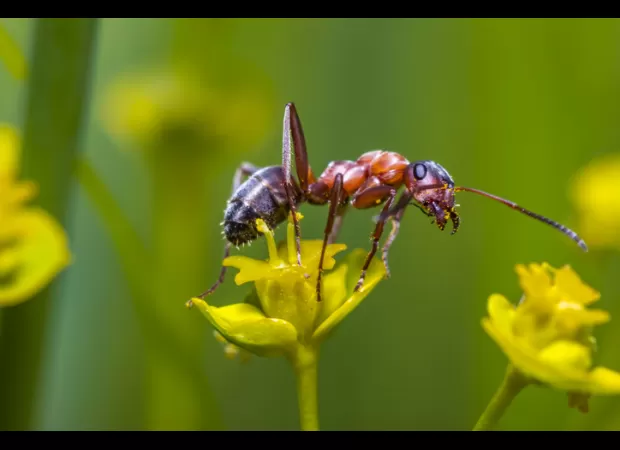Parasites that control ants' minds, turning them into "zombies," are even more horrifying than imagined.
Waking up disoriented, suspended in mid-air with no memory of how you arrived.

A clever parasite can turn ants into zombies - and it's even more cunning than we thought. Researchers from the University of Copenhagen have discovered that the common liver fluke can switch off 'zombie mode' when it gets too hot, allowing the ants to crawl back down.
Lead author Associate Professor Brian Lund Fredensborg said: "Getting the ants high up in the grass for when cattle or deer graze during the cool morning and evening hours, and then down again to avoid the sun's deadly rays, is quite smart. Our discovery reveals a parasite that is more sophisticated than we originally believed it to be."
To study the parasite's behavior, the researchers tagged several hundred infected ants in the Bidstrup Forests near Roskilde, Denmark. Associate Professor Fredensborg and co-author Simone Nordstrand Gasque observed the ants' behavior in relation to light, humidity, time of day and temperature, and found a clear correlation between temperature and ant behavior.
The lifecycle of the liver fluke is a rollercoaster. Hundreds of parasites invade the ant's body, with only one making its way to the brain to take control. When the ant is eaten by a grazer, the parasite that took control of the brain is killed by the animal's stomach acid. The remaining parasites are protected by a capsule that only dissolves once in the host's intestine, enabling them to migrate towards the liver and lay eggs.
These eggs are excreted by the grazer, and are surprisingly tasty to ants. Once eaten by an ant, the eggs develop into larval flukes that reproduce asexually, multiplying into several thousand parasites. The only way for them to escape the snail is by causing it to cough, expelling them in a ball of mucus.
Associate Professor Fredensborg said: “Historically, parasites have never really been focused on that much, despite there being scientific sources which say that parasitism is the most widespread life form. This is in part due to the fact that parasites are quite difficult to study. Nevertheless, the hidden world of parasites forms a significant part of biodiversity, and by changing the host's behavior, they can help determine who eats what in nature. That's why they're important for us to understand.”
The study is published in the journal Behavioral Ecology, and the researchers are continuing to investigate the parasite to determine exactly how it takes over an ant's brain. Associate Professor Fredensborg concluded: “We now know that temperature determines when the parasite will take over an ant's brain. But we still need to figure out which cocktail of chemical substances the parasite uses to turn ants into zombies.”






